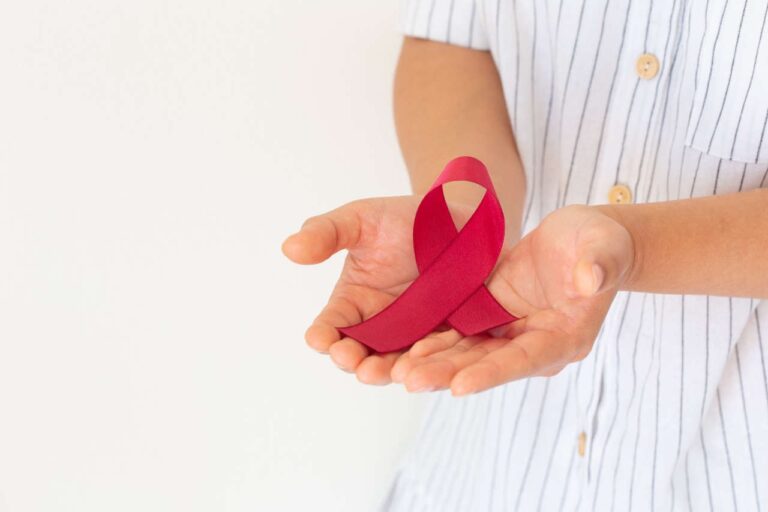
Abiraterone Acetate (pronounced [a bir A ter one AS e tate]) is also known by the brand names Zytiga and Yonsa. Abiraterone is an antineoplastic (anti-cancer) drug that belongs to a class called antiandrogen therapy. It is a type of chemotherapy that prevents cancer cells from multiplying and restricts their growth.
Speak to a Chemo Specialist
What Is Chemotherapy?
Chemotherapy is a cancer treatment in which certain drugs are used to kill cancerous cells. These drugs are usually cytotoxic chemical substances that are toxic to the cells, restrict their growth, prevent their division, and ultimately kill the cells.
Protection From Chemotherapy
This drug is considered to be a hazardous agent, and normally, these pills are covered by a thin coating of material, but if this coating is damaged, removed, melted, or if the pill is broken into pieces, the chemical inside the pill can cause damage to your skin if you touch it. Therefore, it is important to take appropriate precautions for receiving, handling, storing, administering, and disposing of this medication. It is highly recommended to wear gloves if touching this medication and while preparing the suspension. You may also avoid touching it entirely by using the cap of the bottle to scoop up the tablet and put it directly into the mouth.
How Is Abiraterone Used?
Abiraterone has been approved by the Food and Drug Administration (FDA) for males to treat many different types of prostate cancer. It can be prescribed alone or with other medications simultaneously.
Available Formulations
Abiraterone is only available as oral uncoated, film-coated, or micronized tablets. The formulations are not interchangeable; do not substitute between formulations. Abiraterone is available in three different doses: 125 mg, 250 mg, and 500 mg.
Different formulations:
- Zytiga 250 mg tablets are produced in film-coated and uncoated tablets.
- Zytiga 500 mg tablets are film-coated.
- Yonsa is a micronized (fine particle) formulation, available in 125 mg dose only.
- Generic formulations are available in 250 mg and 500 mg doses.
Directions for Use
Abiraterone is typically dosed at 500 mg or 1000 mg once a day. The dose may be lowered with impaired liver function. Most of the time, it is prescribed in combination with a corticosteroid therapy like prednisone or methylprednisone. Verify the correct doses and frequencies with your provider. The dose should not be more or less than what is prescribed. Since different formulations of abiraterone acetate have varying food and dosing requirements, ensure the correct formulation is selected.
Swallow tablets whole with water; do not break, crush, chew, or allow the tablets to be dissolved in your mouth. If tablets are broken or damaged, avoid inhalation or contact with the skin or mucous membranes. Zytiga must be taken on an empty stomach, at least 1 hour before or 2 hours after food. Yonsa, on the other hand, may be administered with or without food.
Missed Dose
This medicine needs to be administered on a fixed schedule. If you miss a dose, skip the missed dose and take your normal dose the next day. If you miss more than one dose, contact your doctor right away. Do not administer double doses to make up for a missed dose.
Storage
Store tablets in their original containers in a cool, dry place at room temperature and ensure the bottle is tightly closed.
Speak to a Specialist About Copay Assistance
What To Avoid While Taking Abiraterone?
While taking abiraterone therapy, you must follow some precautions. Always tell your physician about any medications you are already taking. Do not take any drug or medicine (even herbals, vitamins, or over-the-counter medications) without prior consent from your physician or pharmacist. They may have some significant interactions with abiraterone.
Pregnancy and Abiraterone
Abiraterone acetate is not approved for use in females. Therefore, males with female partners of reproductive potential should use effective contraception during treatment and for 3 weeks after the last dose. Abiraterone is available as uncoated, film-coated, or micronized tablets; the manufacturer recommends patients who are pregnant wear gloves if handling uncoated tablets, micronized tablets, or tablets that are broken, crushed, or damaged. This medication may cause fetal harm or fetal loss.
Side Effects
As with any other medication, you may encounter side effects while taking abiraterone. A few things to remember are:
- You may not have all the side effects listed below. Many people may experience little to no side effects.
- The severity of side effects may vary from person to person, so don’t compare your side effects with other people’s experiences.
- Most of the side effects will improve when therapy is discontinued.
- These side effects are easily manageable most of the time, either by readjusting the dose of abiraterone or using additional medications to treat the symptoms. Consult with your physician or pharmacist to explore available options.
- Do not hide any symptoms; if you feel any discomfort, do not hesitate to tell your physician or pharmacist about it.
Note: This is not a comprehensive list of all side effects. Talk to your doctor if you have questions.
Some of the more serious side effects of abiraterone are listed below:
Adrenocortical Insufficiency (AI)
Although rare, a condition called adrenocortical insufficiency can occur in patients receiving abiraterone therapy. AI is a condition where the adrenal gland (located in the kidneys) is not making enough of a hormone called cortisol. Concurrent infection, stress, or interruption of daily corticosteroids can increase the risk of developing AI. Signs of AI include muscle weakness, chronic or long-lasting fatigue, weight loss, abdominal pain, or loss of appetite.
Liver Complications
In certain cases, abiraterone acetate can affect the liver and cause liver damage. The condition of the liver is monitored through blood tests that are able to detect liver function. Severe liver damage can lead to hepatitis or liver failure. Contact your physician immediately if you experience liver problems like dark urine, fatigue, lack of appetite, nausea, abdominal pain, light-colored stools, vomiting, or yellow skin or eyes. These may be indications of liver complications.
Get Chemotherapy Copay Assistance
Chemotherapy Financial AssistanceCardiac Complications
Although uncommon, there is an increased risk for abiraterone acetate to cause cardiac conditions like high blood pressure. It can also cause low potassium levels, which may lead to arrhythmias, and can cause fluid retention which may lead to heart failure. It may also increase the interval between when the heart contracts and relaxes, potentially increasing the risk for even more cardiac complications.
Low Blood Sugar
Low blood sugar as a side effect is more commonly seen in diabetic patients taking abiraterone. More specifically, it is seen in patients receiving certain diabetic medications like repaglinide, pioglitazone, rosiglitazone, etc. The dose for the diabetic medication may need to be adjusted to prevent low blood sugar (which can be life-threatening). Signs of low blood sugar include fatigue, pale skin, shakiness, anxiety, sweating, hunger, or irritability.
Other common side effects may include:
- Flushing
- Muscle, joint pain, or swelling
- Heartburn
- Cough
- Constipation or diarrhea
- Upset stomach
- Headache
- Nose or throat irritation
- Trouble sleeping
Monitoring
Due to its many side effects, monitoring is an important part of managing abiraterone therapy.
- Monitoring for signs and symptoms of adrenocortical insufficiency is essential throughout treatment.
- Frequent blood tests must be done to monitor blood glucose, potassium, and liver function levels.
- Blood pressure should be regularly checked (high blood pressure could be due to fluid retention).
- Patients with a history of heart failure, recent myocardial infarction (MI), or ventricular arrhythmia should be closely monitored for other cardiac complications.
Consult a Chemotherapy Specialist
Get Chemotherapy Treatment AssistanceFAQs
Is abiraterone a chemo agent?
Chemo drugs are those that are used in the management of various cancers. Abiraterone works by blocking the production of the testosterone hormone, thereby slowing the growth and spread of prostate cancer. Thus, it is a chemo agent that is used as a treatment option for various cancer patients.
How should abiraterone be taken?
Abiraterone is only available as oral uncoated, film-coated, or micronized tablets. Abiraterone is typically dosed at 500 mg or 1000 mg once a day. Most of the time, it is prescribed in combination with a corticosteroid therapy like prednisone or methylprednisone. Verify the correct doses and frequencies with your provider. Swallow tablets whole with water; do not break, crush, chew, or allow tablets to be dissolved in your mouth.
What happens if you take Zytiga with food?
Zytiga has a positive food effect, meaning that the amount of drug absorbed will increase if it is taken with food. Therefore, Zytiga should be taken on an empty stomach with water, at least one hour before or two hours after eating. Yonsa, on the other hand, may be administered with or without food.
REFERENCES:
- Abiraterone. In: Lexi-drugs online [database on the Internet]. Hudson (OH): Lexicomp, Inc.; 2016 [updated 2 Feb 2022; cited 2 Feb2022]. Available from: http://online.lexi.com.
- Abiraterone. In: In Depth Answers [database on the Internet]. Greenwood Village (CO): IBM Corporation; 2017 [cited 2022 Feb 2]. Available from: www.micromedexsolutions.com.
- Abiraterone: MedlinePlus Drug Information. Medlineplus.gov. https://medlineplus.gov/druginfo/meds/a611046.html. Published 2022. Accessed February 5, 2022.
- Zytiga: Uses, dosage, side effects, warnings. Drugs.com. (n.d.). Retrieved January 28, 2022, from https://www.drugs.com/Zytiga.html.
- Zytiga (abiraterone) dosing, indications, interactions, adverse effects, and more. https://reference.medscape.com/drug/yonsa-zytiga-abiraterone-999651#91. Published August 26, 2021. Accessed February 4, 2022.
- How does Zytiga® work? ZYTIGA® (abiraterone acetate). https://www.zytiga.com/taking-zytiga. Published February 17, 2020. Accessed February 4, 2022.













